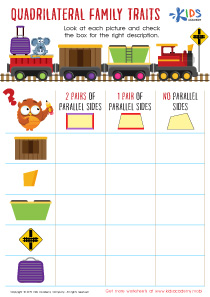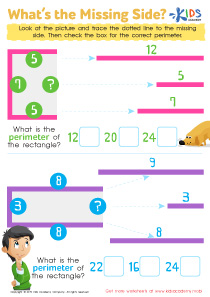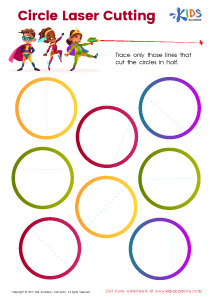Shape Recognition Normal Tracing Shapes Worksheets for Ages 4-8
6 filtered results
-
From - To
Enhance your child's shape recognition skills with our Shape Recognition Normal Tracing Shapes Worksheets, designed specifically for ages 4-8. These engaging worksheets provide a fun and educational experience, allowing children to trace and identify various shapes while boosting their fine motor skills. With clear instructions and delightful illustrations, young learners will enjoy mastering circles, squares, triangles, and more. Ideal for both classroom and home use, these worksheets support early math skills and foundational geometry concepts. Equip your child with the tools they need to succeed in their educational journey with our expertly crafted, interactive tracing worksheets.
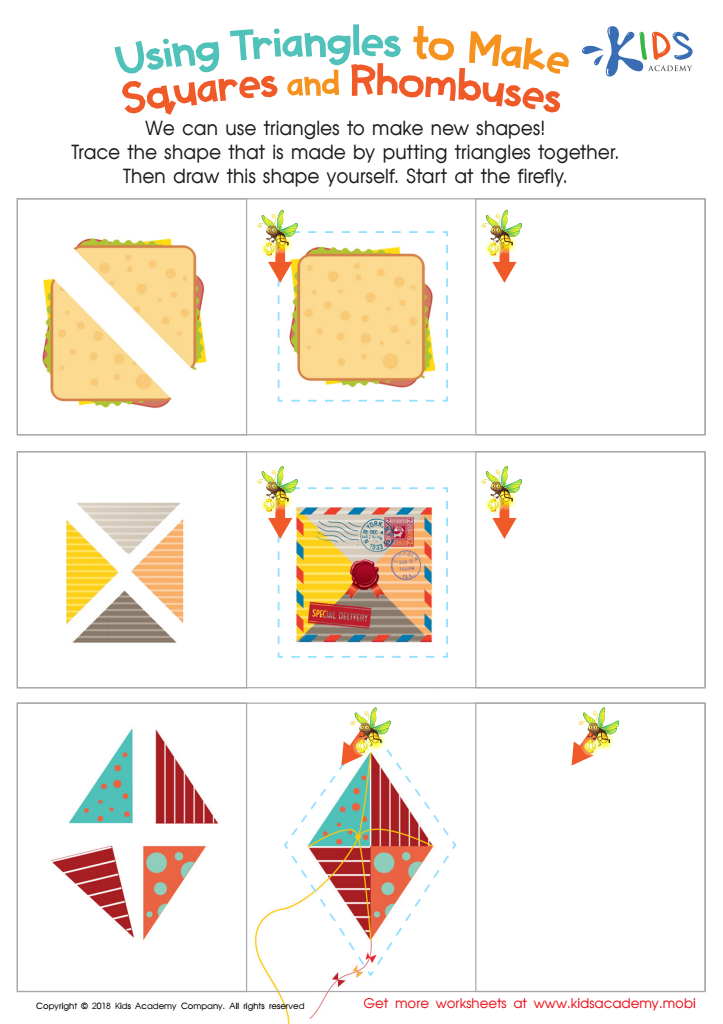

Using Triangles to Make Squares and Rhombuses Worksheet
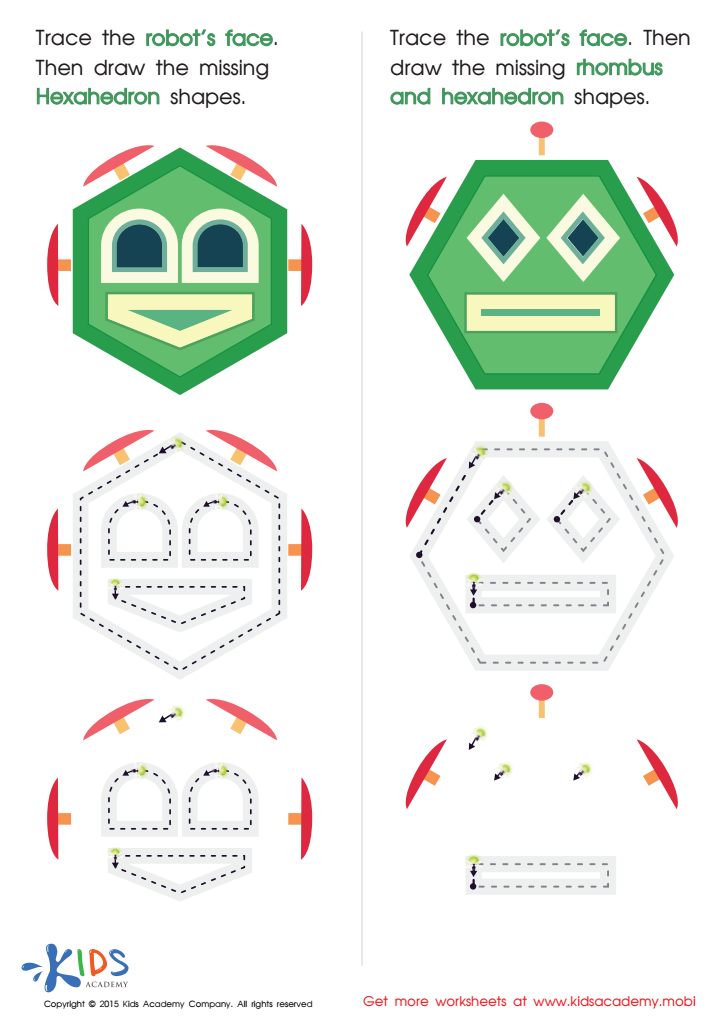

Practice Drawing Hexahedrons And a Rhombus Worksheet
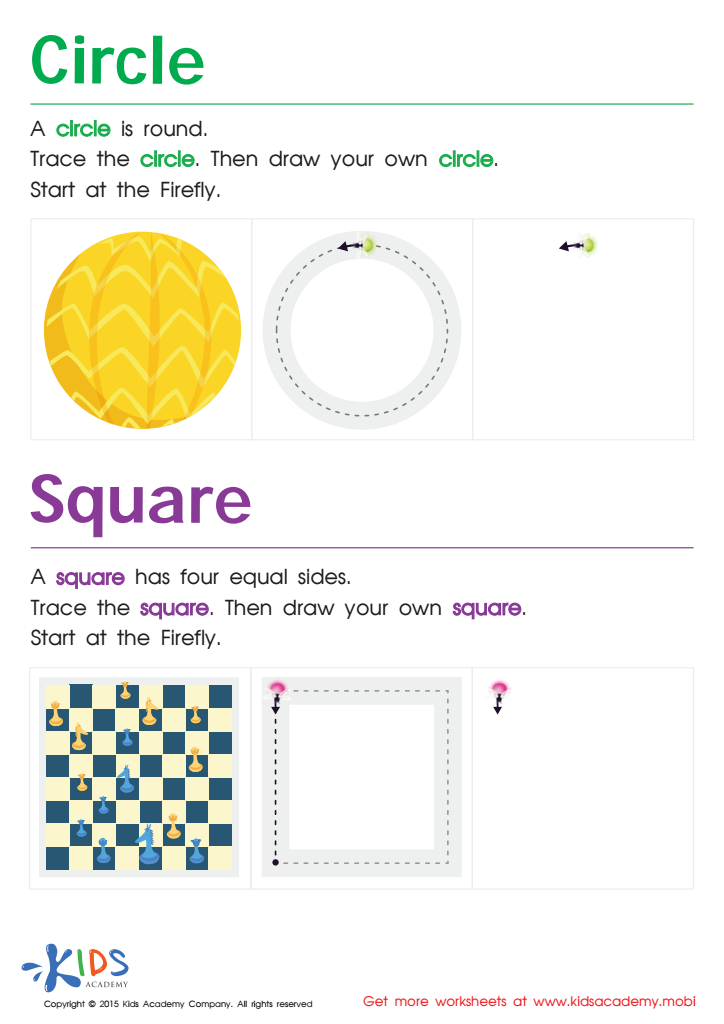

Trace And Draw a Circle And a Square Worksheet
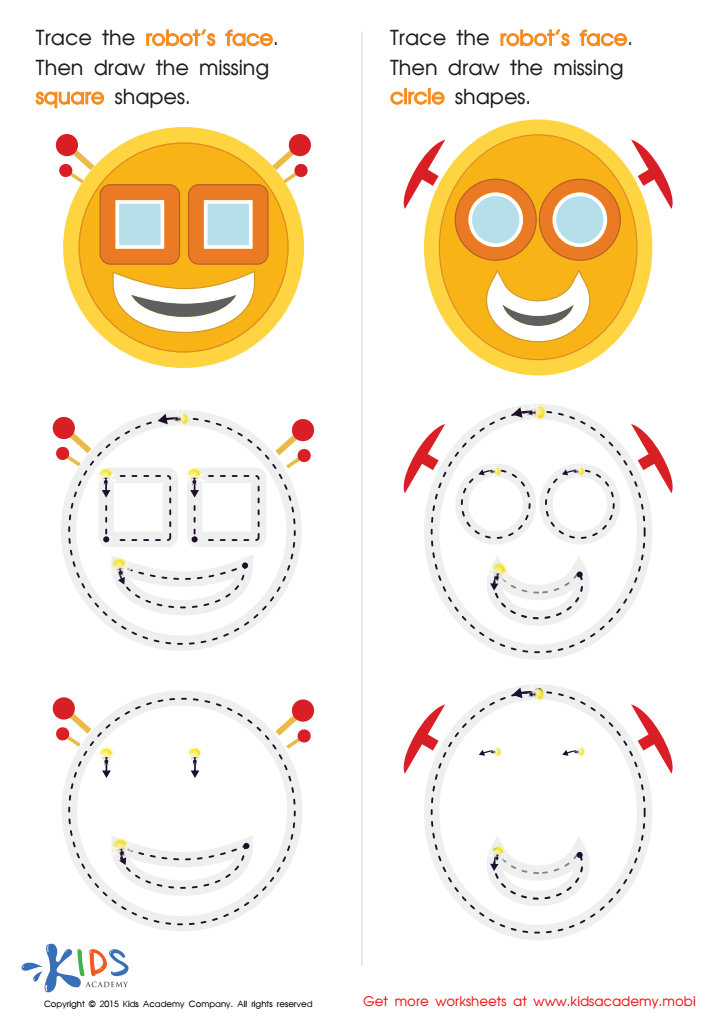

Practicing to Draw Circles And Squares Printable
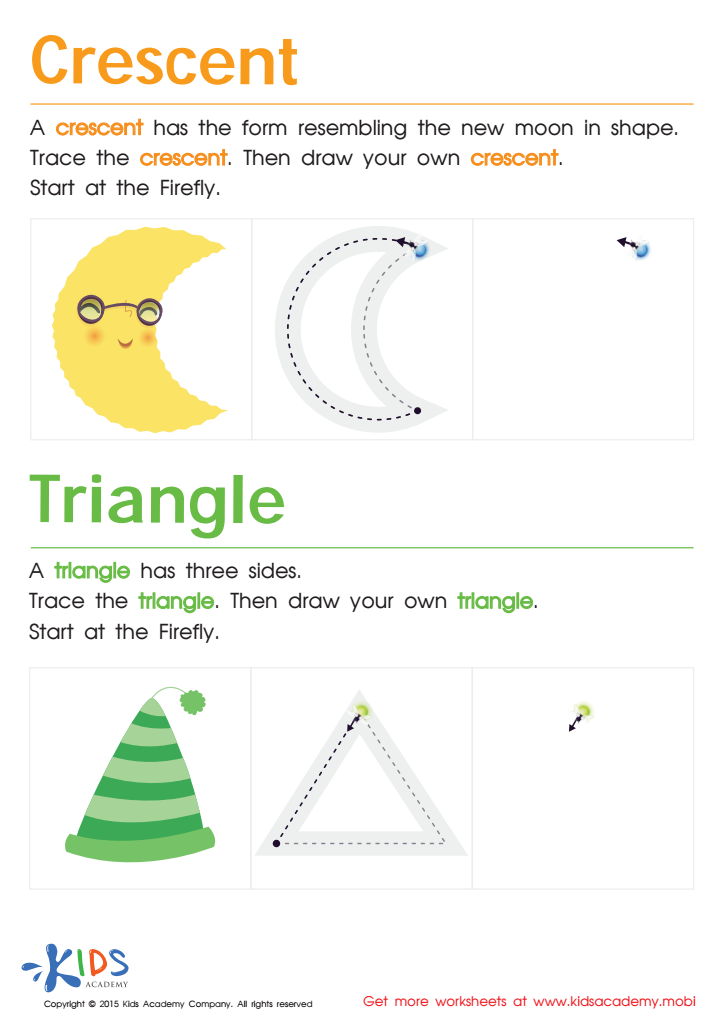

Learning to Draw Crescents And Triangles Worksheet
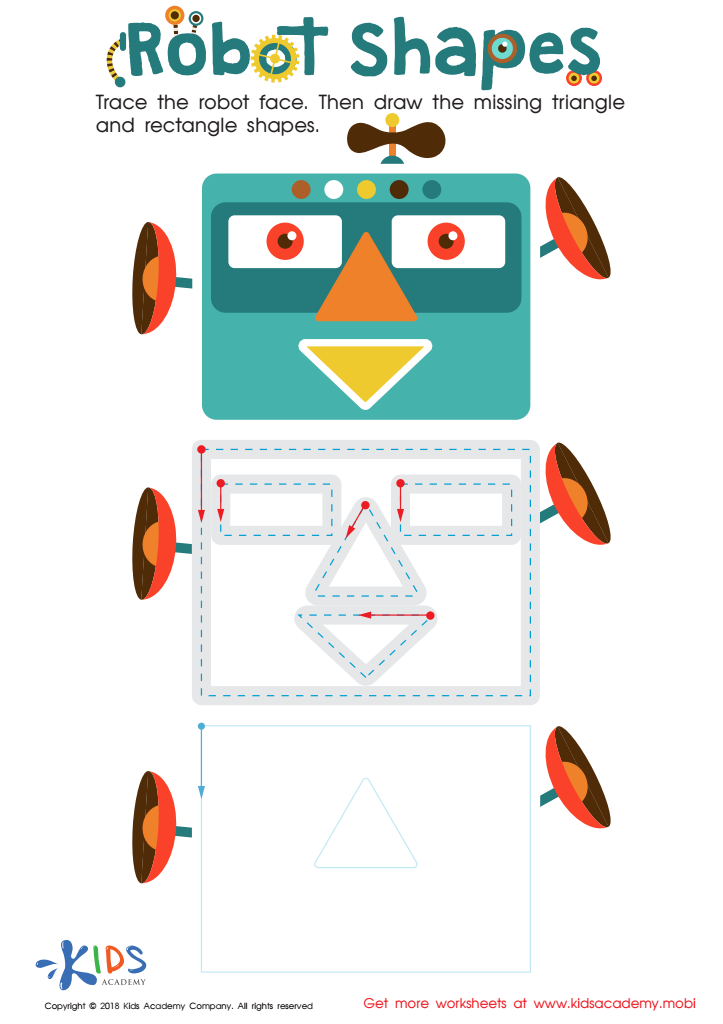

Robot Shapes Worksheet
Parents and teachers should prioritize shape recognition and tracing activities for children aged 4-8 because these foundational skills significantly contribute to their overall cognitive and motor development. Shape recognition is crucial as it lays the groundwork for early mathematical abilities, including understanding geometry, spatial awareness, and problem-solving. Recognizing different shapes allows children to categorize and compare objects, fostering critical thinking and analytical skills.
Engaging in normal tracing activities enhances fine motor skills, particularly hand-eye coordination, which are essential for writing and other daily tasks. These activities strengthen the muscles in children's fingers and hands, promoting dexterity and control.
Moreover, shape recognition and tracing activities support language development by expanding vocabulary. Children learn the names of shapes and their attributes, facilitating better communication and descriptive skills.
These exercises also spark creativity and interest in the arts. Recognizing and creating shapes can lead to drawing, building, and other artistic endeavors, enriching a child's educational experience.
Ultimately, parents and teachers encouraging shape recognition and tracing help build a robust foundation for a child’s academic future, ensuring they develop vital skills that ease their transition into more complex subjects and daily activities.
 Assign to My Students
Assign to My Students










